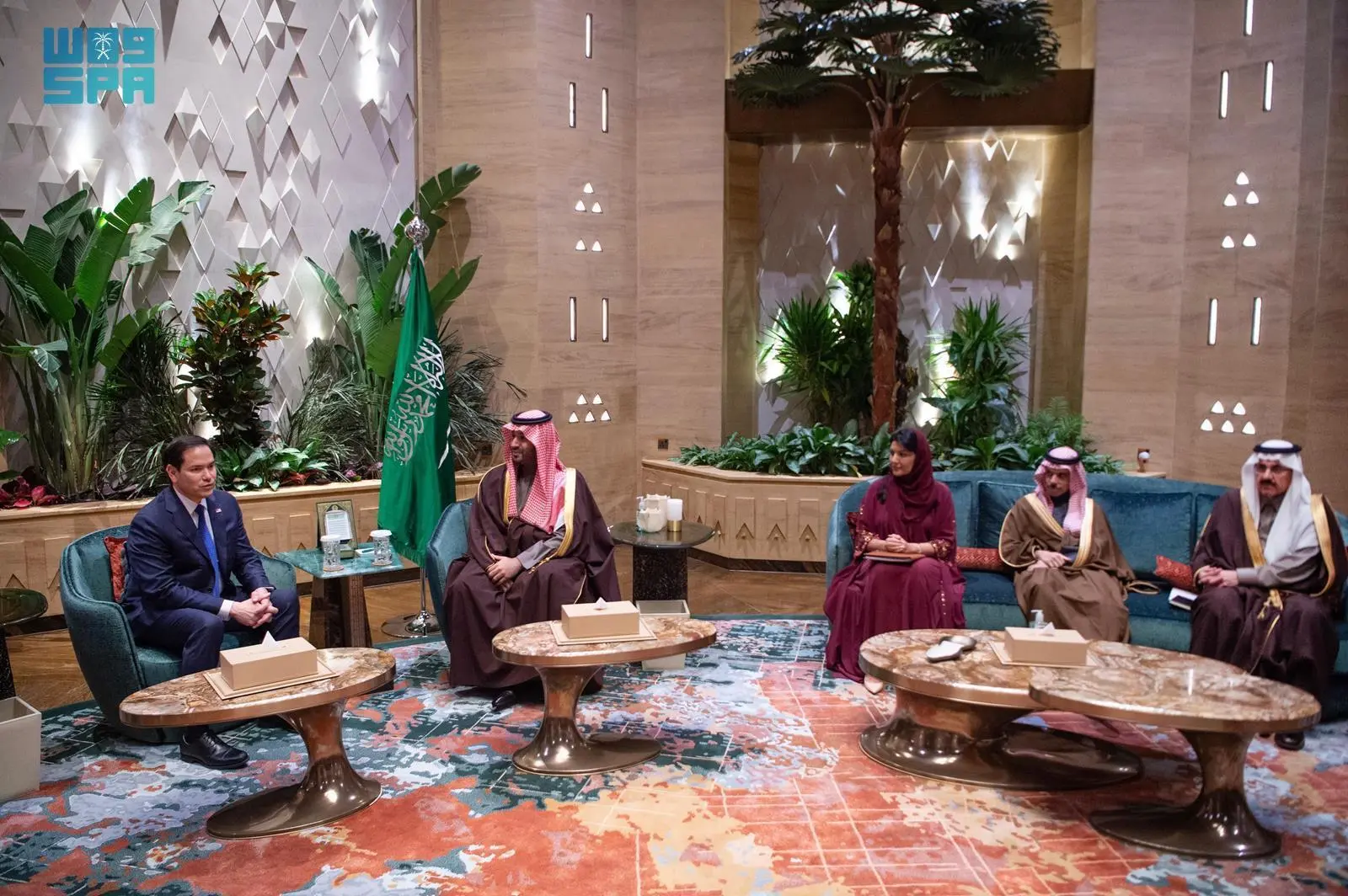It’s a busy period in Saudi Arabia as the kingdom hosts high level U.S. and Russia talks, welcomes the U.S. Secretary of State as well as the Ukrainian President and, perhaps, sets the stage for U.S.-Iran discussions.
On Monday Saudi Crown Prince and Prime Minister Mohammed Bin Salman met first with US Secretary of State Marco Rubio who had recently visited Israel. Rubio also met with Saudi Foreign Minister Prince Faisal bin Farhan Al Saud.
The U.S. State Department readout noted that the “Secretary and the Crown Prince reaffirmed their commitment to implementing the ceasefire in Gaza and ensuring that Hamas releases all hostages, including American citizens. The Secretary underscored the importance of an arrangement for Gaza that contributes to regional security. They discussed ways to advance shared interests in Syria, Lebanon, and across the region, to include Red Sea security and freedom of navigation.”
Ukrainian President Volodymyr Zelensky is set to arrive in Riyadh on Wednesday for an official visit but was not invited to participate in the U.S.-Russia discussions. Zelensky stated that he will not be meeting with any Russian or US officials while in Saudi Arabia. Zelensky’s Saudi visit is part of a broader diplomatic tour, which will also include official trips to the United Arab Emirates and Turkey. According to Ukrainian news agencies, Zelensky said that Ukraine “cannot recognize any things or any agreements about us without us.”
Both the U.S. and Russia downplayed the the likelihood of break-throughs in this meeting and that no date had been set for a Trump-Putin meeting. According to AP News, “Kremlin spokesman Dmitry Peskov told reporters that the talks would be primarily focused on “restoring the entire range of U.S.-Russian relations, as well as preparing possible talks on the Ukrainian settlement and organizing a meeting of the two presidents.” U.S. State Department spokeswoman Tammy Bruce has said the meeting was aimed at determining how serious the Russians are about wanting peace and whether detailed negotiations can be started.”
Meanwhile, Saudi Arabia is spearheading a ‘mini Arab summit’ in Riyadh to discuss a counter proposal to President Trump’s recent suggestion that the U.S. take over Gaza and expel Palestinians. According to Le Monde:
“A planned meeting in Saudi Arabia of Arab leaders in response to United States President Donald Trump’s plan to take control of Gaza has been postponed by a day and expanded, Arab diplomats said… Three Arab states had been expected to attend the summit, but the Saudi source said the expanded meeting will “include the leaders of the six Gulf Cooperation Council countries, along with Egypt and Jordan, to discuss Arab alternatives to Trump’s plans in the Gaza Strip”… The Saudi source said that “an influential Gulf country expressed its dissatisfaction at being excluded from the Riyadh summit, which prompted the organizers to include all the Gulf countries” – without specifying which country.”
In addition to these initiatives, CNN reports that Saudi Arabia has offered to mediate between Iran and the United States on a potential deal to limit Tehran’s nuclear program. CNN reports that, “The kingdom is concerned that Iran may be more inclined to pursue a nuclear weapon now that its regional proxies – long viewed as a deterrent against Israeli attacks – have been significantly weakened. Saudi Arabia hopes to leverage its close ties with President Donald Trump to provide Iran with a diplomatic bridge to the White House. It is unclear whether Saudi Arabia has made a formal offer, but the move underscores Riyadh’s desire to build on its improved relations with its former foe and secure a seat at the negotiating table for a potential new deal.”
Abbas Lawati writes that, “Saudi officials see the current regional landscape as a historic opportunity to de-escalate tensions with Iran and improve ties, insisting that they want no part in any American or Israeli confrontation with the country.”
To read more, click here, here, here, here, here, here, here, here and here.









